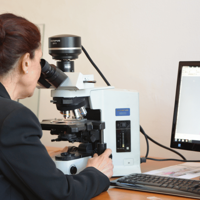ankara
Experts have drawn attention to the increasing incidence of cancer in pets and animals, pointing to second-hand smoke as a key factor.
Dr. Sebilay Atalai Vural, professor at Ankara University's Faculty of Veterinary Medicine, stressed that cancer affects not only humans but also animals, highlighting its prevalence and urging owners to be aware of the early signs of cancer. urged them to pay.
In addition, Dr. Vral also mentioned various other environmental and physical factors that contribute to the development of cancer in animals, such as environmental pollution, genetic predisposition, and the effects of long-term harness use in some animals. .
She noted that skin tumors are especially common in white-skinned animals exposed to ultraviolet light.
Vral also discussed the responsibility of pet owners to spot early signs of cancer in their animals, highlighting changes in behavior, appetite, and appearance.
“Do not use your hands unnecessarily when petting. Any bumps, swelling or hardness should alert the owner,” she advised.
“If conscious pet owners notice a change in the color of mucous membranes, decreased eating, reluctance to play, worsened breathing, or slight limping when performing oral care, You should seek help from your veterinarian.”
Vral says early intervention can extend the lifespan of an affected furry friend by one to two years, so it's important to seek veterinary care promptly if anything unusual happens. emphasized the importance.


